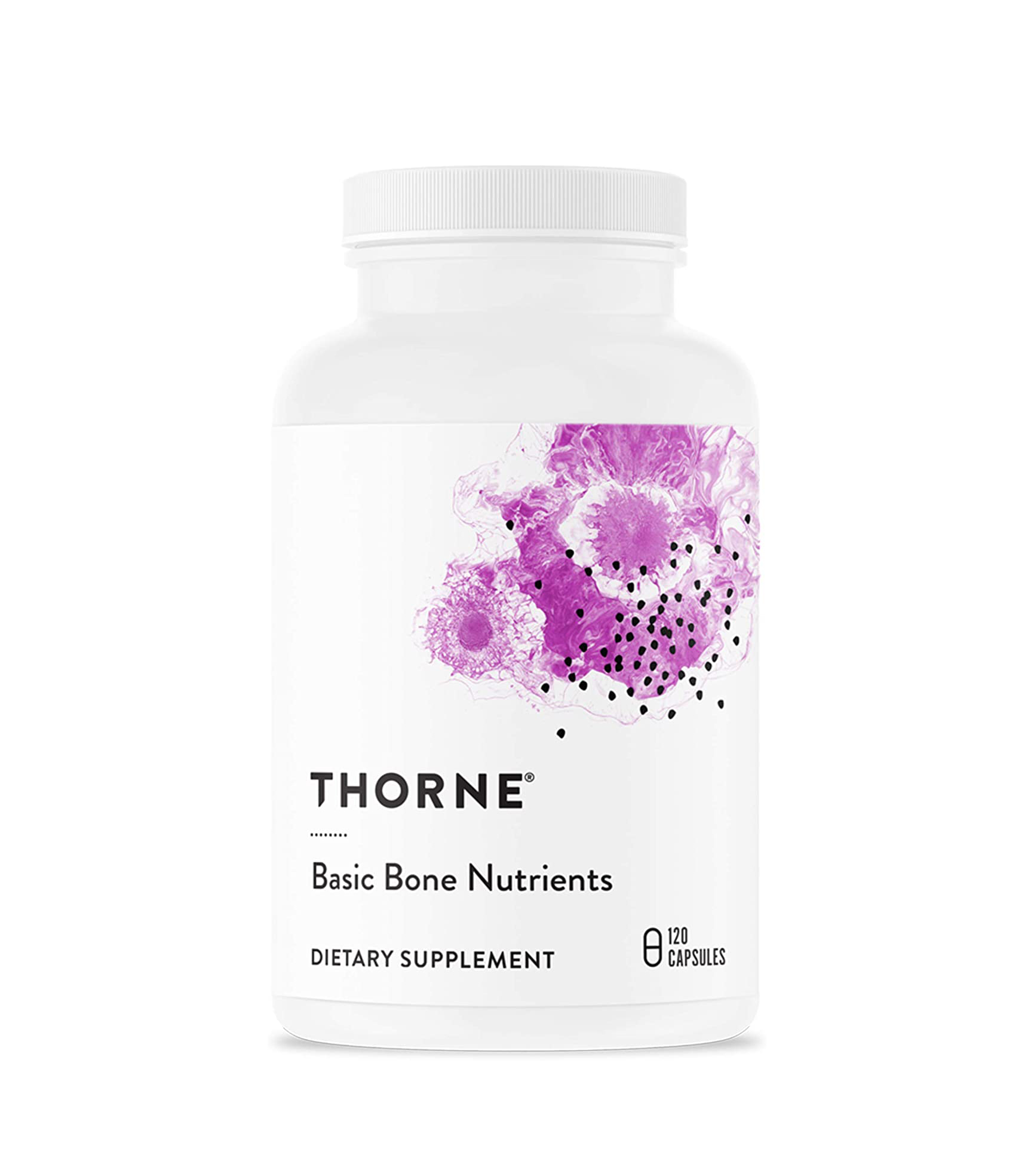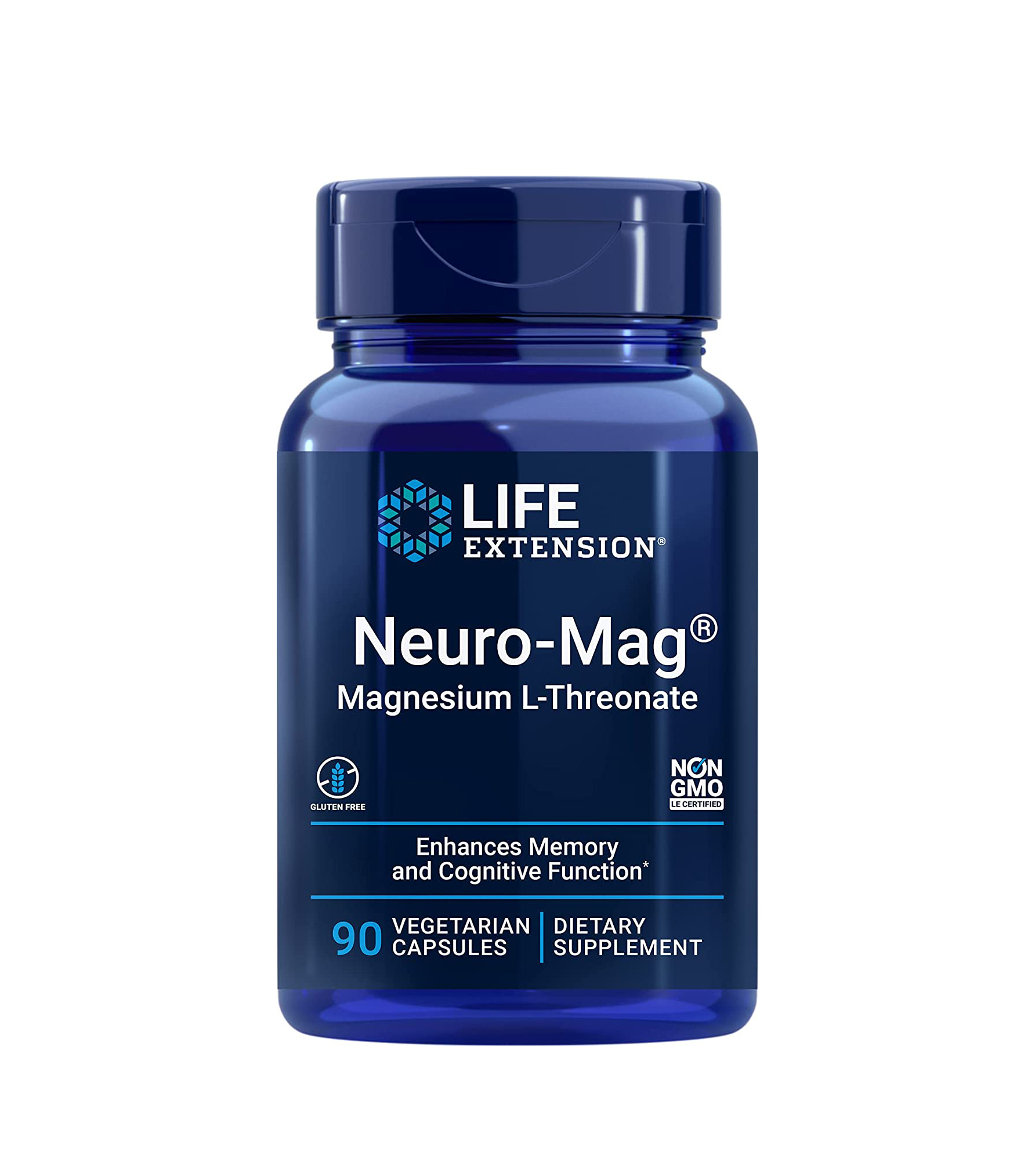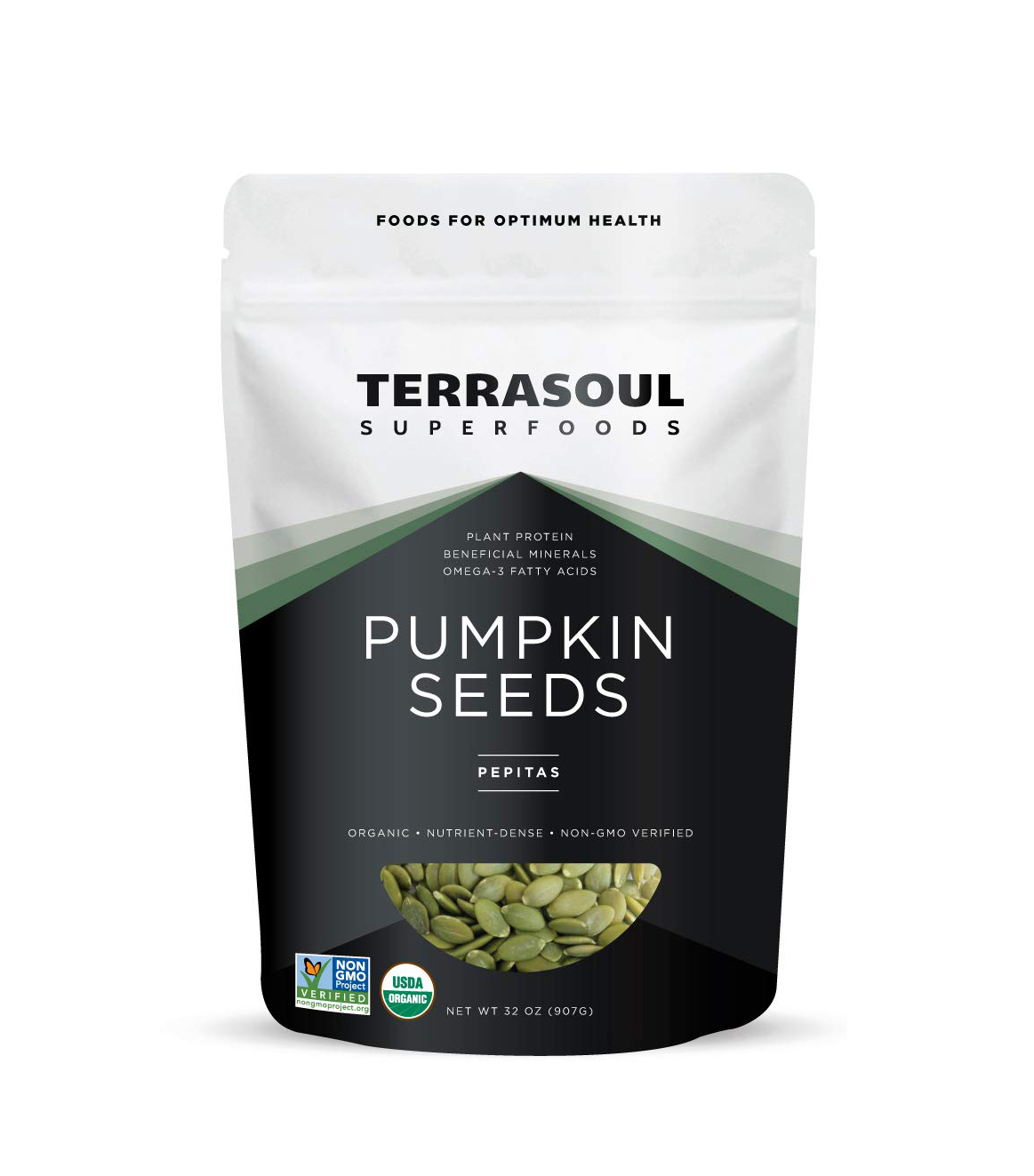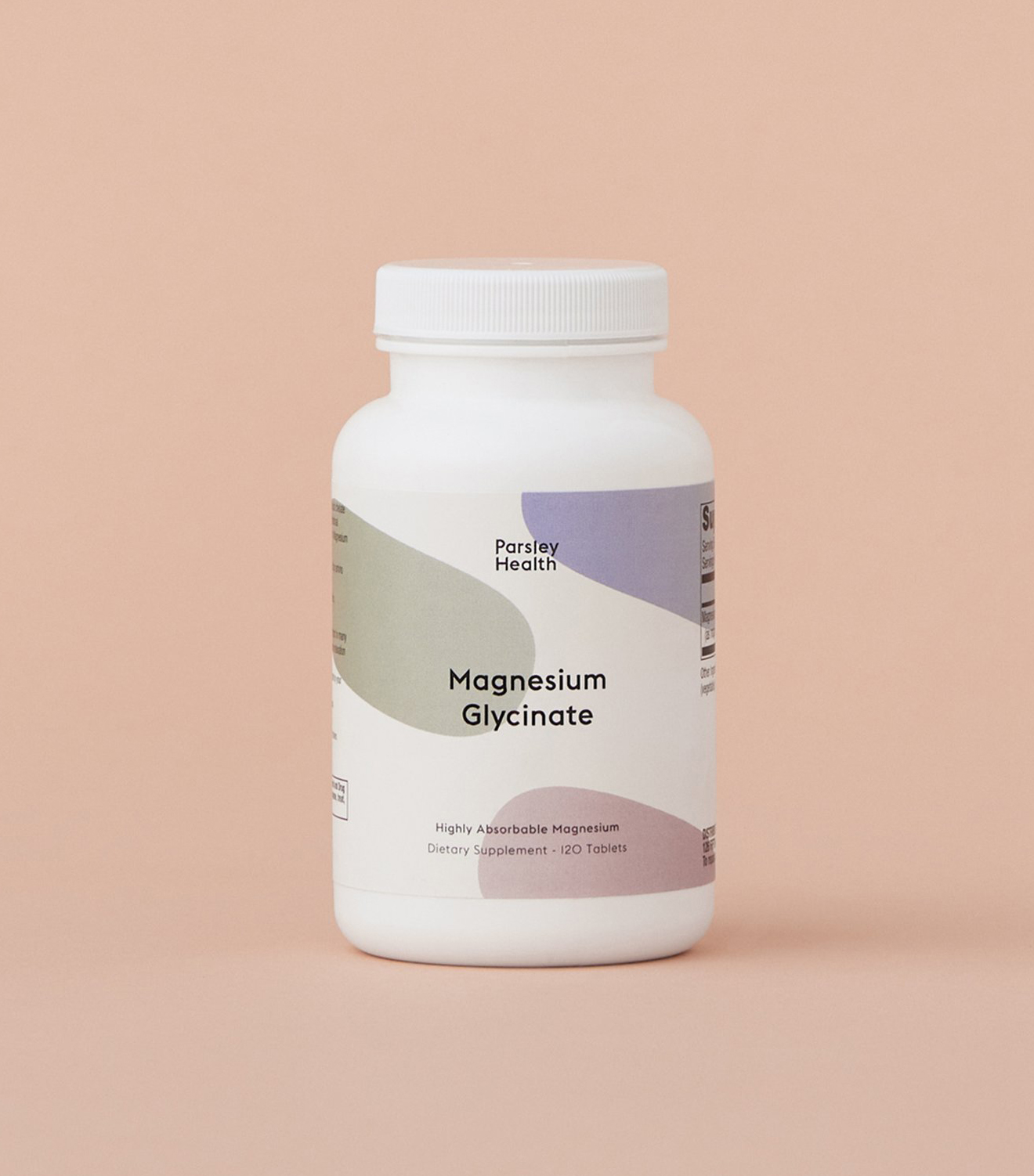You Might Be Deficient in This Metabolism-Boosting Nutrient—Here's How to Fix It

If you're like me, you probably know that magnesium is a nutrient that is good for you, but you have a kind of vague idea of what its actual benefits are. Well, it turns out that magnesium plays a big role in many bodily functions. "Magnesium is a vital and important mineral," explains cardiologist Alejandro Junger, MD, founder and Medical Director of the Clean Program. "It's one of the most abundant minerals in the body, in fact. It's an essential nutrient. It's found in every cell and we need it to function."
Magnesium is important for metabolism, according to Tamar Samuels, MS, RDN, NBC-HWC, a registered dietitian, national board-certified health and wellness coach, and co-founder of Culina Health. "Magnesium supports several metabolic processes in the human body by serving as a cofactor for more than 300 enzyme systems," she explains. "Magnesium plays a key role in protein synthesis, muscle and nerve function, blood glucose control, and regulating our blood pressure."

And it supports energy, too. "It helps us convert food into energy, regulates our cardiac function and blood pressure, and it is essential to building strong muscles and bones," Junger says. "Stress depletes our magnesium stores very quickly. In fact, most people in the United States are exhibiting some form of magnesium deficiency, often showing in fatigue, muscle weakness, or muscle spasms."
In short, it's a big deal when it comes to your health. The experts highlighted some of the benefits the mineral has below.
1. It Supports Heart Health

"Studies have found that magnesium lowers blood pressure, although only by a marginal amount," explains Vanessa Rissetto, MS, RD, a registered dietitian nutritionist and co-founder of Culina Health. "Higher intakes of magnesium have also been found to reduce the risk of stroke. Furthermore, people with higher blood levels of magnesium and overall higher magnesium intake have been found to have a lower risk of sudden cardiac death, ischemic heart disease, and cardiovascular disease overall."
2. It Can Affect Depression

"Magnesium is part of enzymatic reactions that help our neurological functions," explains Vanessa Clermont, RD, an Integrative Nutrition Health Coach. "When malfunctioning, low amounts of magnesium can lead to depression and anxiety."
3. It Can Help With Sleep

"I think of magnesium as the 'relaxation mineral,'" says Ivy Carson, NP-BC, IFMCP, a nurse practitioner at Parsley Health. "It is one of my go-tos for patients struggling with anxiety or sleep issues."
4. It Helps Manage Blood Sugar

Samuels says that studies have found that people who consume higher intakes of magnesium have a significantly lower risk of diabetes. It helps manage insulin formation and glucose uptake. "Furthermore, magnesium deficiency may contribute to and/or worsen insulin resistance, the precursor to Type 2 diabetes," she adds. "People with diabetes also have an increased risk of magnesium deficiency, which can ultimately worsen diabetes management."
5. It Affects Stress

"There seems to be a relationship between magnesium and stress—states of higher physical or mental stress may increase magnesium loss, and at the same time, insufficient magnesium levels may make the body more vulnerable to stress and anxiety," Carson says.
6. It Plays a Role in Bone Density

"Approximately 50-60% of magnesium is stored in our bones," explains Clermont. "As calcium plays a vital role in keeping our bones healthy, so does magnesium. Studies have shown that individuals with higher dietary intakes of magnesium have greater bone density."
Rissetto adds that magnesium also has a role in bone formation by helping to regulate cells called osteoblasts and osteoclasts. "Magnesium also supports bone health by affecting the concentration of parathyroid hormone and vitamin D, both of which help regulate bone homeostasis," she says. "As a result, some research has found that magnesium deficiency may be a risk factor for osteoporosis."
7. It Can Help With Musculoskeletal Issues
8. It Affects Migraines

"Studies have found that people who have migraines are more likely to have magnesium deficiency compared to people who do not have migraines," Samuels says. "Magnesium influences several factors that may contribute to migraines, including neurotransmitter release and blood pressure."
9. It Can Help With Constipation

"Certain types of magnesium, such as magnesium citrate, are a fantastic option to help manage constipation," Carson says. "Magnesium citrate is known as an osmotic agent, which means it helps pull more water into your bowels, softening your stools, and making them easier to pass."
10. It Can Reduce PMS Symptoms

Carson adds that magnesium is also a great option for reducing various PMS symptoms, like menstrual migraines, mood swings, anxiety, and cramping.
How to Consume Magnesium

Clermont says the recommended daily allowance for men and women is 400-420mg and 310-320mg daily, respectively. For pregnant women, it's 350-360mg daily. You can find magnesium in a lot of foods. Rissetto adds foods that contain dietary fiber, like leafy greens, legumes, nuts, seeds, and whole grains are rich sources of magnesium. "Magnesium can also be found in tap, mineral, and bottled water, but the amount of magnesium in water depends on the source and the brand," she explains. "The best dietary sources of magnesium are pumpkin seeds (37% of the daily value (DV) in 1 ounce), chia seeds (26% of the DV in 1 ounce), almonds (19% of the DV in 1 ounce), and spinach (19% of the DV in 1 ounce). Of note, we absorb about 30 to 40% of magnesium found in food/water."
While magnesium can be easily found in many foods, a lot of our diets do not meet the daily recommendations. You can add a few more servings to boost your intake, but you can also take supplements as well. If you do decide to go the supplement route, Clermont suggests consulting with your doctor to see if you're deficient. They'll also be able to guide you on which supplements to take.
It's important to note that there are different types of magnesium supplements out there. Carson makes type and dosage recommendations based on her clients' unique health concerns and blood levels, but she broke down some of the common types of supplements you'll find:
Magnesium Glycinate
Magnesium Citrate
Magnesium L-Threonate

"[It] appears to be the best option to increase magnesium levels in the brain, and may improve learning and memory," Carson says.
Magnesium Malate

"[It] combines magnesium with malic acid which may help boost energy and reduce musculoskeletal pain, so this is one of my go-to options for patients with conditions like Fibromyalgia (though studies are mixed, I've seen benefits in practice)," Carson says.

And Junger recommends magnesium carbonate, which can help your nervous system and digestive system. He also adds that it can cause relaxation, relieve stress, and even help with constipation and indigestion.
Next, These 10 Functional Foods Are Like a Whole Body Reset
This article is provided for informational purposes only and is not intended to be used in the place of advice of your physician or other medical professionals. You should always consult with your doctor or healthcare provider first with any health-related questions.
Sarah is lifestyle writer and editor with over 10 years of experience covering health and wellness, interior design, food, beauty, and tech. Born and raised in Los Angeles, she attended New York University and lived in New York for 12 years before returning to L.A. in 2019. In addition to her work atBest Knockoff Luxury Clothing , she held editor roles at Apartment Therapy, Real Simple, House Beautiful, Elle Decor, and The Bump (sister site of The Knot). She has a passion for health and wellness, but she especially loves writing about mental health. Her self-care routine consists of five things: a good workout, “me” time on the regular, an intriguing book/podcast/playlist to unwind after a long day, naps, and decorating her home.




